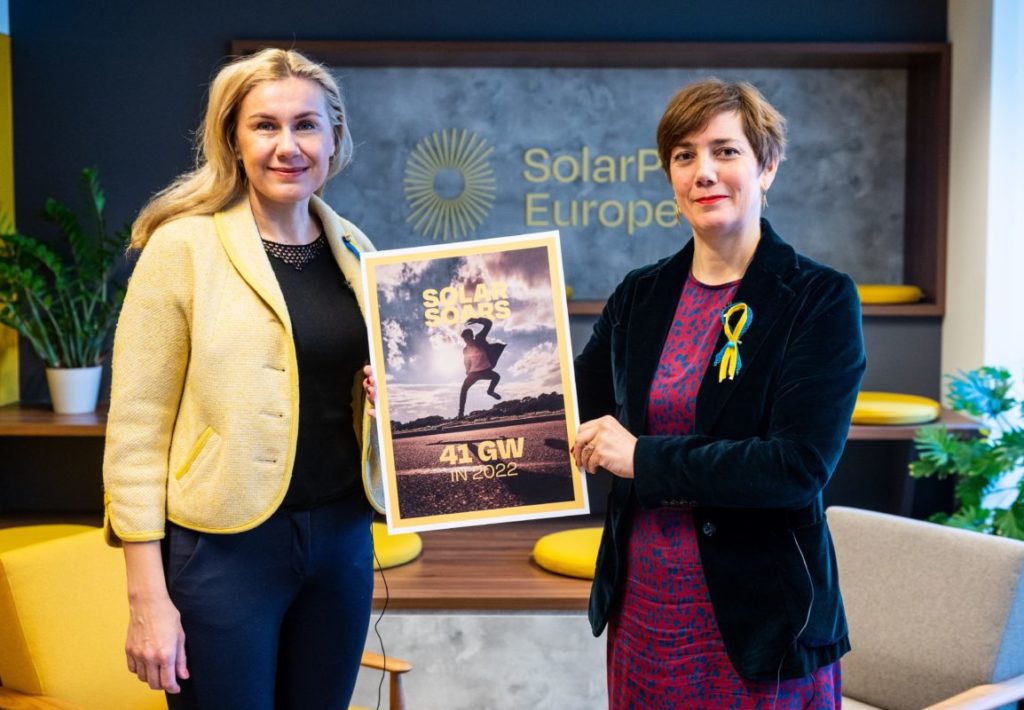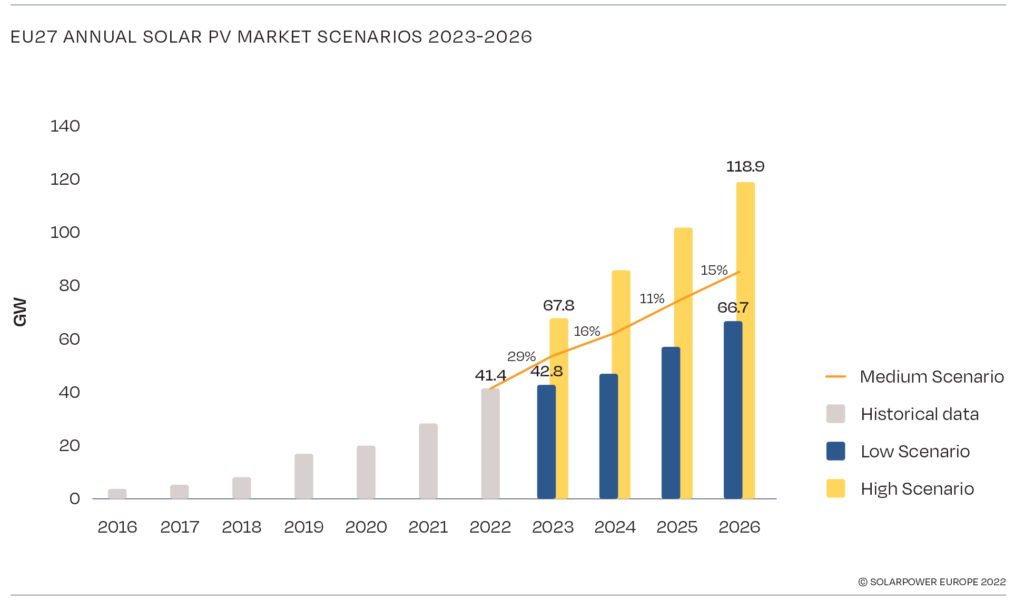
The EU installed 47% more solar in 2022 than last year and is on track to double its capacity by 2026 to an expected 484GW, according to a report by industry association SolarPower Europe.
The Russian war in Ukraine and the subsequent energy crisis, alongside growing climate concerns and the push for net zero, has seen the European solar market begin a significant growth period in 2022. Last year saw 28.1GW of new solar PV across the EU, whereas 2022 draws to a close with 41.4GW of solar capacity installed.
Try Premium for just $1
- Full premium access for the first month at only $1
- Converts to an annual rate after 30 days unless cancelled
- Cancel anytime during the trial period
Premium Benefits
- Expert industry analysis and interviews
- Digital access to PV Tech Power journal
- Exclusive event discounts
Or get the full Premium subscription right away
Or continue reading this article for free
The overall solar capacity in the EU rose 25% to 208.9GW this year. Germany led the way in new installations, adding 7.9GW of solar in 2022, with Spain (7.5GW), Poland (4.9GW), the Netherlands (4GW) and France (2.7GW) accounting for the rest of the top five countries. SolarPower Europe said that, for the first time, all of the ten largest installers in Europe were gigawatt-scale markets.
PV Tech reported earlier this month that European demand – specifically from the Netherlands, Spain, Poland and Germany – has led to a surge in Chinese solar module exports this year.
Walburga Hemetsberger, CEO of SolarPower Europe said: “The numbers are clear. Solar is offering Europe a lifeline amid energy and climate crises. No other energy source is growing as quickly, or reliably, as solar. We’re building a secure, green, prosperous Europe on a foundation of solar.”
The EU announced its REPowerEU scheme earlier this year in response to the Russian invasion of Ukraine and its subsequent weaponising of energy supplies. The programme targets 740GWdc of solar PV by 2030, through a series of measures including mandatory rooftop deployment on new buildings and the cutting of administrative red tape around solar permitting. Last month, France issued a mandate requiring all large car parks to have solar rooftops from July 2023.
Dries Acke, policy director at SolarPower Europe said: “It’s more than high time to take solar seriously. That means tackling barriers head on. We need more electricians and stable electricity market regulation. A solar-powered Europe can only be based on smoother administrative processes, speedier grid connections, and resilient supply chains.”

Looking forward, SolarPower Europe said it expects 2023 to see over 50GW of solar PV installed across EU member states, according to its average ‘most likely’ pathway. This would lead to at least 85GW of solar capacity added annually by 2026. SolarPower Europe’s ‘low scenario’ sees 66GW of solar capacity installed annually by 2026, whilst its ‘high scenario’ sees almost 120GW of solar come online a year in the second half of the decade.
Its market report outlined five key points to ensure continuous, stable growth in the EU’s solar market. It specified growing the solar workforce, maintaining regulatory stability and investor certainty, enabling smoother integration with solar PV and the grid, improved spatial planning and permitting procedures and ensuring a stable and reliable PV supply chain.
Whilst installations have been booming, recent calls have mounted to build out Europe’s PV manufacturing base, as its reliance on Chinese imports becomes more starkly problematic. PV Tech analysed this mounting pressure and the need for domestic manufacturing in a recent blog.
Last week, the European Solar PV Industry Alliance was launched, with the aim of boosting the bloc’s manufacturing capabilities to 30GW by 2050. Prior to the alliance’s launch, representative body the European Solar Manufacturing Council called for a funding and support package in line with the US’ Inflation Reduction Act to act as a catalyst for a European manufacturing base.






